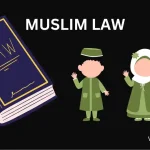Sharia law is a religious law based on the Quran and Sunnah, or Prophet Muhammad’s life and teachings. It is founded on the notion that Islamic law should be applied in a way that promotes justice, equity, and compassion. Muslims have practiced Sharia law for centuries, but it has recently come under investigation in countries such as the United States due to its discrimination against women and harsh punishments.
In this blog post, we will define Sharia law and discuss how you might use it to your benefit. We’ll also go through some of the risks of utilizing it and how to mitigate them.
Sharia Law: What Is It and How Does It Work?
Sharia law is a collection of religious laws used by Muslim legal systems to control daily life. Sharia law is based on the Quran and the Sunnah, or Muhammad’s teachings. Sharia law governs everything from personal relationships to business transactions.
Sharia law varies based on the country, yet there are some fundamental concepts that all sharia laws share. These concepts include the conviction that Islam is the only way to be right, that Muslims are responsible for their own conduct and must follow Islamic laws, and that Sharia law should take precedence over any other legal system.
Some countries have attempted to impose Sharia law as their official legal system but have failed since it is incompatible with key human rights notions like religious freedom and freedom from discrimination.
Even if it were compatible with these ideas, many individuals oppose sharia law as the official legal system because they believe it contributes to injustice and inequity in society.
Sharia Law in India
The Islamic legal system is known as Sharia law. It is founded on the Quran and the Sunnah, or Muhammad’s teachings. Sharia law applies to all Muslims, albeit there are differences among them. Sharia law varies greatly from country to country and even within countries. In several respects, it may be more stringent than secular law.
Sharia law has been a source of contention in India since its establishment. According to critics, it is sexist, homophobic, and violent. Others argue that it creates a just system for Muslims. Sharia law has no universally accepted definition, and its application differs across India. Sharia courts have been established in some locations to provide a more consistent interpretation of Islamic law.
Sharia Law in the Marriage Context
Sharia law is a type of religious legislation derived from the Quran and the Sunnah, or Muhammad’s teachings. In different settings, Islamic scholars employ diverse perspectives to derive Sharia law. There are two schools of thought on Sharia law: “legalist” and “theologian.” Legalists believe Sharia law must be evidence-based, whilst theologians believe it should be influenced by religious principles.
Sharia law has no single interpretation; many countries have adapted it to their own legal systems. Sharia law has historically been used to discriminate against women, homosexual and lesbian people, and other minorities.
It has also been used to justify violence against these individuals and groups. In rare circumstances, Sharia courts have declared that Muslims who marry non-Muslims are apostates and should be executed.
Most Western countries do not accept Sharia law as legal. Sharia law’s shortcomings, particularly its discriminatory features, are becoming more widely recognized. Some people advocate a more liberal interpretation of Sharia law that is more compatible with Western principles.
Sharia Law in Criminal Proceedings
Sharia law is Islamic religious law. It is based on the Qur’an and Sunnah and governs many religious, social, and legal concerns. Sharia law solely applies to Muslims.
Sharia law derives from the concepts of justice found in classical Islamic jurisprudence. Qiyas (analogical reasoning), ijtihad (interpretation), madhhabs (schools of thought), and fatwas are among these principles (legal rulings).
Sharia law is divided into two parts
- civil laws
- religious rules.
Civil laws govern issues such as marriage, divorce, inheritance, property ownership, business transactions, and court evidence. Prayers, fasting, mosques, dietary restrictions, and criminal punishment are all covered by religious laws.
There is no single interpretation of Sharia law that applies globally. Based on its cultural history and traditions, each country has its own unique interpretation. Some aspects of Sharia law are more widely recognized in different countries than others. For example, in some regions of the world, stoning for adultery is common, but not in others.
Concerns have been expressed concerning the growing use of Sharia courts in Muslim-majority countries throughout Europe and North America. These courts provide an alternative system of justice that may be difficult for non-Muslims to understand or access. According to critics, these courts are used to discriminate against women and other minorities.
Conclusion
Sharia law is a collection of Islamic religious laws that govern Muslims’ daily lives. There is no single interpretation of Sharia, and many countries have their own. Sharia is similar to other legal systems around the world in certain ways, but it is unique to Islam in others.
The goal of this essay is not to debate the advantages and disadvantages of Sharia law, but rather to provide a fundamental grasp of what it is and how it functions. If you want to learn more about Sharia law, I recommend reading some books or articles on the subject.
Sharia law belongs to which religion?
Sharia law belongs to the Muslim religion.
How many types of sharia law?
There are two types: civil law and religious law.






